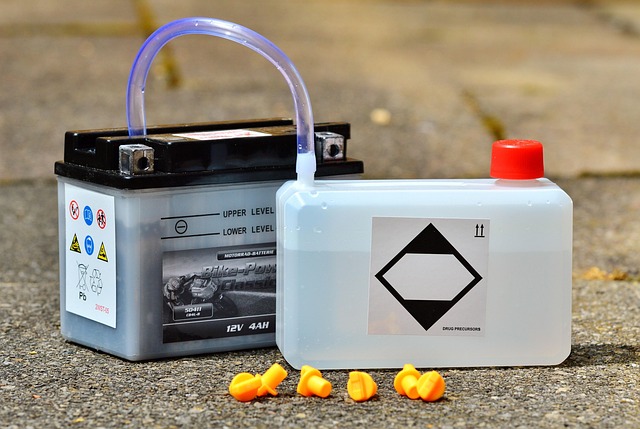The NYS electronic recycling law in Boston mandates responsible e-waste management through local drop-off points and corporate reduction programs, offering convenient access for residents while incentivizing sustainable disposal methods. Businesses are legally bound to adhere to strict protocols for electronics recycling, avoiding landfill or incineration, with stringent penalties for non-compliance.
“In the digital age, managing end-of-life electronics responsibly is non-negotiable. This article guides you through New York State’s (NYS) Electronic Recycling Law and its regulations, offering a comparative analysis with Boston’s requirements. We explore the obligations of businesses in ensuring secure computer disposal while highlighting proper methods and potential penalties. By understanding these aspects, individuals and organizations can contribute to environmental preservation and stay compliant with state-mandated NYS electronic recycling law standards, especially when contrasting them with Boston’s initiatives.”
- NYS Electronic Recycling Law Overview
- Boston vs. New York Disposal Regulations
- Business Obligations for Computer Disposal
- Proper Disposal Methods for Electronics
- Enforcement and Penalties: What to Expect
NYS Electronic Recycling Law Overview

In New York State (NYS), the Electronic Recycling Law requires businesses and organizations to responsibly manage end-of-life electronics. This law, also known as the NYS e-waste statute, aims to minimize environmental impacts associated with electronic devices. Boston residents have specific rights regarding the recycling of their electronic waste under this legislation. The law facilitates access to free or low-cost recycling services for consumers and ensures that e-waste is handled in an environmentally sound manner.
Local e-waste drop-off locations throughout Boston adhere to these NYS guidelines, providing convenient options for residents to dispose of their electronics responsibly. Additionally, specialized training programs focused on NYS electronic recycling regulations are available to equip Boston workers with the knowledge needed to handle and process e-waste according to state standards. These initiatives contribute to a sustainable approach to managing electronic waste in Boston while aligning with broader efforts across NYS to protect the environment and public health.
Boston vs. New York Disposal Regulations

When comparing Boston’s and New York’s (NYS) disposal regulations for electronics, it’s clear that both cities prioritize environmental protection but differ in their approaches. Boston’s e-waste management is characterized by a robust network of local drop-off locations, ensuring convenient access for residents to responsibly dispose of electronic devices. These facilities adhere to the NYS guidelines, which promote safe and environmentally friendly recycling practices.
In contrast, New York State has implemented a comprehensive electronic recycling law that places specific responsibilities on businesses within the state. The NYS incentives for businesses promoting electronic recycling in Boston encourage corporate participation in e-waste reduction programs. As a result, the Boston area witnesses increased business engagement in sustainable disposal methods, further strengthening its adherence to NYS environmental standards.
Business Obligations for Computer Disposal

In New York State (NYS), businesses have a legal obligation to responsibly dispose of and recycle electronic waste, often referred to as e-waste, in line with the NYS electronic recycling law. This includes computers, servers, monitors, and other electronic devices that are no longer in use. Boston, as part of NYS, adheres to these state laws and regulations, ensuring proper management of electronic waste. Businesses must implement programs for collection, reuse, and recycling of e-waste, protecting both the environment and consumers’ health.
According to the NYS electronic waste disposal regulations, businesses cannot simply discard electronic devices in landfills or incinerators. Instead, they are required to collaborate with certified recyclers who follow strict protocols outlined by Boston’s adherence to state laws. Furthermore, Boston residents also have rights regarding electronic recycling per NYS law, ensuring that their personal and business electronics are handled responsibly and securely.
Proper Disposal Methods for Electronics

Proper disposal of electronics is a critical component of New York State’s (NYS) electronic recycling law, specifically designed to protect both the environment and public health in Boston and across the state. Under this legislation, Boston area businesses have specific responsibilities regarding e-waste recycling. They are mandated to implement NYS-compliant recycling programs that ensure the safe disposal of electronics.
This involves employing NYS-mandated electronic recycling solutions, which typically include proper segregation, collection, and transportation of electronic devices. Businesses must ensure these items end up in certified recycling facilities where they can be processed safely and responsibly. Adhering to these guidelines not only helps meet legal obligations but also contributes to a more sustainable future by minimizing the environmental impact of electronic waste.
Enforcement and Penalties: What to Expect

Enforcement and penalties under the NYS electronic recycling law are designed to ensure compliance with best practices for Boston area electronic recycling under NYS rules. Businesses and organizations that fail to adhere to these regulations can expect significant consequences, including fines and legal action. NYC vs. Boston: Electronic waste disposal laws compared highlights the importance of understanding NYS regulations for electronic recycling programs in Boston, as non-compliance can result in substantial penalties.
These penalties are not only financial but can also include restrictions on future operations, damaging a company’s reputation. Therefore, it’s crucial to implement and maintain robust electronic recycling practices that align with both local NYC and state NYS laws. By adhering to the best practices for Boston area electronic recycling under NYS rules, businesses can avoid these pitfalls and contribute to sustainable waste management in the region.
In conclusion, understanding and adhering to computer disposal laws, such as the NYS Electronic Recycling Law, is essential for both businesses and individuals in New York. By comparing regulations with cities like Boston, we’ve highlighted the importance of proper electronic waste management. Businesses have specific obligations to fulfill, but everyone can play a role in reducing e-waste through knowledge of approved disposal methods. Enforcement and penalties serve as reminders that responsible recycling is not just a suggestion but a legal requirement, ensuring New York stays ahead in sustainable practices compared to cities like Boston.













